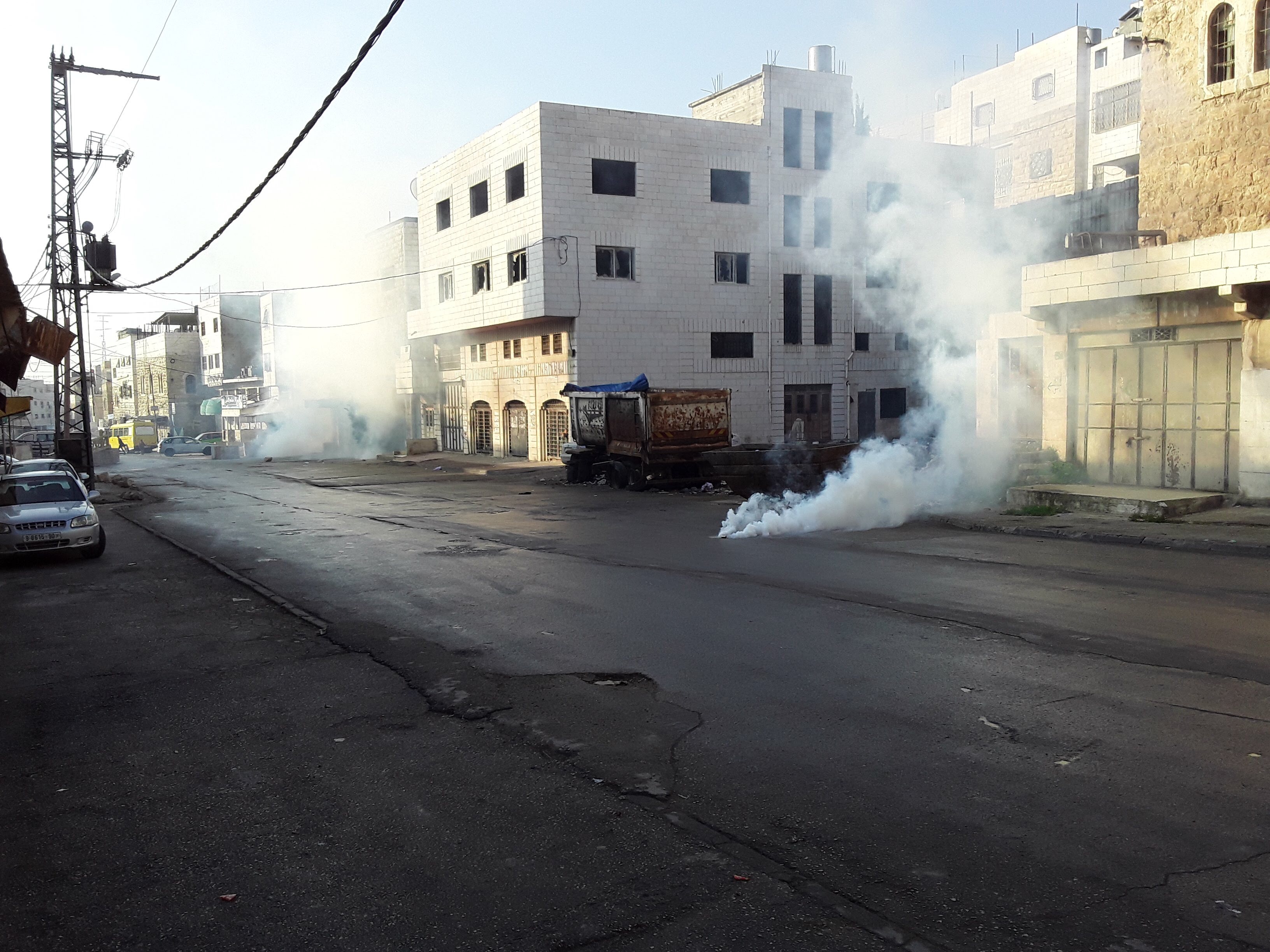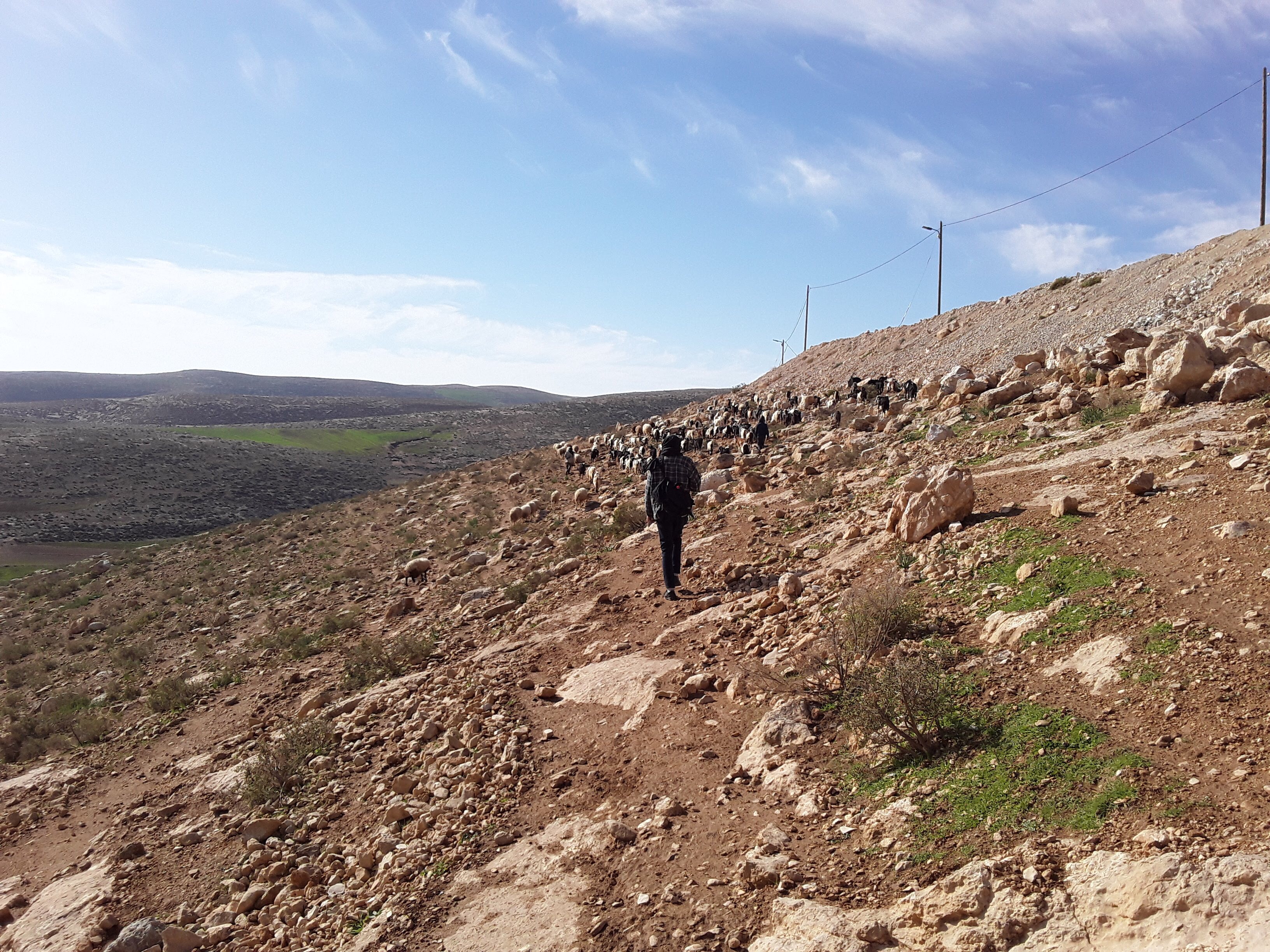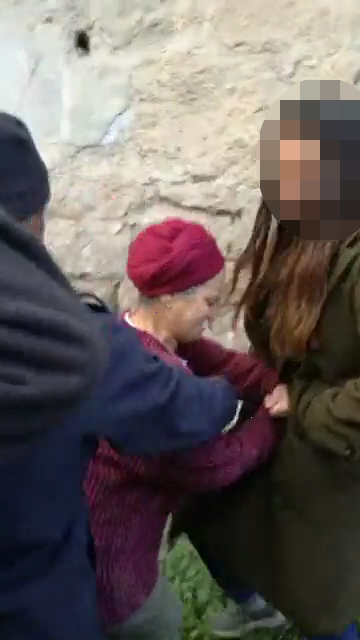-
Hebron Report 15.02.2019
On the morning of February 14, 2019, ISM activists were forced to leave the Shuhada Street area as it was declared a closed military zone. The activists were monitoring the Qurtuba checkpoint, which is passed every morning by teachers and children going to school. Palestinians are regularly targeted and harassed by settlers and the military […]
-
Resistance in the South Hebron Hills
In early January, ISM activists visited the villages of Um al-Khair and At-Tuwani in the South Hebron hills in order to participate in renovation work on ancient caves and to bear witness to recent settler violence in both villages. The villages are located in Area C of the occupied West Bank, occupied Palestine, an area […]
-
Another ISM member attacked by violent Settler, Anat Cohen
February 10, 2019 | International Solidarity Movement, Al-Khalil team | Al-Khalil, occupied Palestine Every day, ISM volunteers monitor the Qurtuba checkpoint in Al-Khalil during mornings and afternoons to ensure the safety of Palestinian schoolchildren. Attacks and harassment by Israeli Defense Forces, police and settlers seem to be increasing. This is the fourth ISM volunteer attacked […]
Action Alert An Nabi Saleh Apartheid Wall Arrests BDS Bethlehem Bil'in Cast Lead Demonstration Denial of Entry Ethnic Cleansing Farmers Gaza Global Actions Hebron House Demolition International law Israeli Army Jerusalem Live Ammunition Nablus Ni'lin Prisoner Ramallah Rubber-coated steel bullets Settlement Settlers Settler violence Tear-Gas Canister Video



